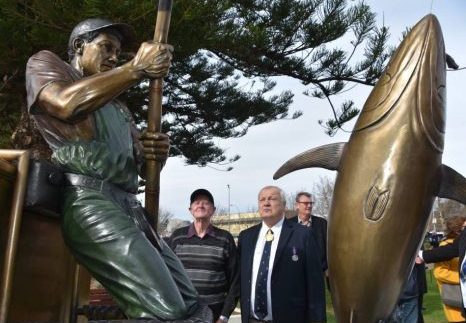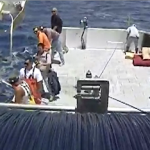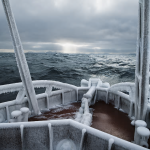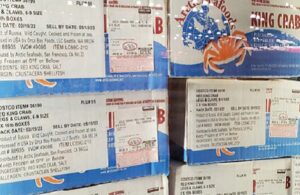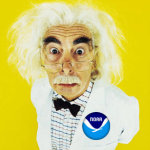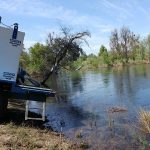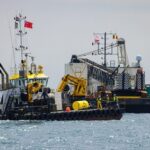Monthly Archives: July 2019
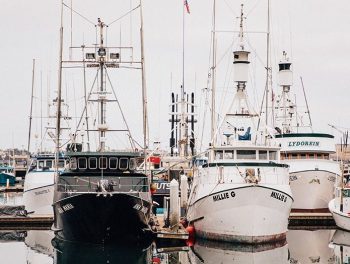
A little market, some big boats, and a $2 billion project are poised to revive San Diego’s commercial fishing industry
“The beginning was tough—they didn’t trust us,” says Yehudi “Gaf” Gaffen, CEO of Protea Waterfront Development, referring to San Diego’s fishermen and women. “For decades they’ve been discriminated against and business has been taken away from them. People take advantage of them.” Gaffen and his company have won the bid to redevelop the San Diego harbor. Their $2 billion “Seaport San Diego” plan will historically alter the future of the city’s waterfront—70 acres, to be almost exact. The fate of local fishers lies largely in his hands. And a little fish market on a little dock may be the reason both Gaffen and the fishers themselves are so keenly aware of their vital importance. >click to read< 17:35
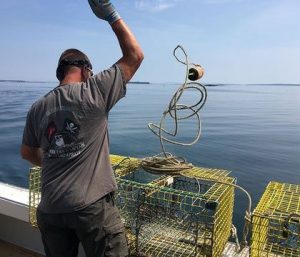
Changing climate boosts Maine lobster industry — for now
Maine’s lobster industry has found itself in something of a climate change sweet spot. The state’s coastal waters are still cold enough for lobster to thrive, but warming ocean temperatures are now encouraging them to settle here, mate and eventually shed their hard shells.,,, “Maine has enjoyed this abundant, expanding resource but everything that comes up must come down, and that is very related to climate change because that is very related to water temperature,” said Genevieve McDonald, a lobsterman and Stonington’s new representative in the Maine Legislature. >click to read< 16:44
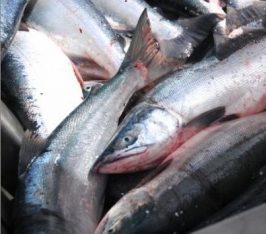
Kenai River sockeye push liberalizes bag limits; commercial catches rise
After a slow start to their season, things are looking up for Upper Cook Inlet’s commercial fishermen. Total salmon landings reached 1.4 million after the July 29 fishing period, with more than 1.1 million sockeye so far. The majority of those landings have come from the Central District drift gillnet fleet and east side setnets, with setnetters on the west side, Kalgin Island and in the Northern district bringing in about 150,000 salmon between them, according to the Alaska Department of Fish and Game. Elizabeth Earl >click to read< 15:29
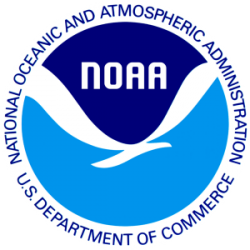
New England: Public Scoping Meetings for Modifications to Atlantic Large Whale Take Reduction Plan
We will be conducting eight scoping meetings this month in anticipation of preparing a Draft Environmental Impact Statement for modifications to the Atlantic Large Whale Take Reduction Plan. We are requesting comments on management options particularly including information about operational challenges, time, and costs required to modify gear by changing configurations such as traps per trawl to reduce endline numbers, installing new line or sleeves and by expanding gear marking requirements. >click for time and location details< 12:46
Athearn Marine Agency Boat of the Week: 50′ Split Wheel House Offshore Lobster Boat. Reduced to $99,900
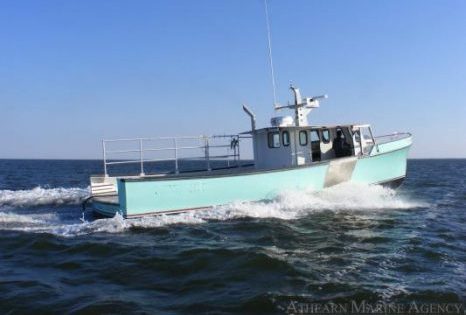 Specifications, information and 9 photos >click here< To see all the boats in this series, >click here<12:18
Specifications, information and 9 photos >click here< To see all the boats in this series, >click here<12:18
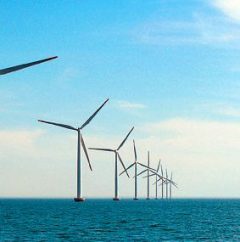
R.I. delegation raises concerns with speed of offshore wind review
Why the rush? Avangrid CEO Jim Torgerson spelled it out to investors on a call last week: To take advantage of an expiring federal tax credit, Vineyard Wind needs to be operational in 2021. If the nation’s first major offshore wind farm doesn’t get off the ground, there will be plenty of finger-pointing to go around. Some may be pointed at Rhode Island’s congressional delegation. The state’s two senators and two representatives sent a letter on July 12 to the Bureau of Ocean Energy Management, expressing concerns about how the federal agency has handled the review of offshore wind development. In particular, they want BOEM to be more sensitive to potential conflicts with fishermen and marine life. (They also want the agency to open a regional office in Rhode Island.) >click to read< 10:43

ASMFC: New England/Mid Atlantic – Lobster Trap Transfer Program for Fishing Year 2020
We are considering future changes to the federal lobster regulations as recommended by the Atlantic States Marine Fisheries Commission. These changes include the use of a control date to limit the number of traps or lobster permits a federal permit holder can have in Areas 2 and 3. Any new measures could impact your trap allocations as early as fishing year 2021. We are also discussing potential measures that would minimize threats to North Atlantic right whales. You should stay informed of potential changes, and know that you transfer traps at your own risk and subject to these new potential regulations. >click to read< 10:14
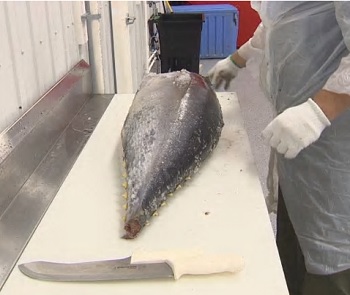
P.E.I. tuna processing plant opens up new markets, bigger profits
A tuna buyer in North Lake, P.E.I., has just opened what he says is Canada’s first federally-approved bluefin tuna processing facility. The cut house, as it’s called, uses traditional Japanese knives to process the tuna. Jason Tompkins has been in the tuna business for 18 years, the last six as a buyer in North Lake. He said it was time to find a new way to sell tuna from Prince Edward Island. >click to read< 09:43
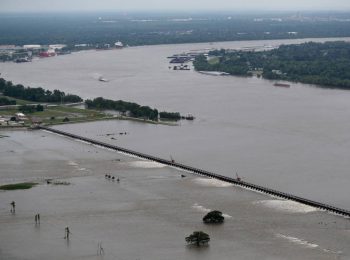
Bonnet Carre Spillway shut down as river falls below flood stage
The U.S. Army Corps of Engineers over the weekend completed the shutdown of the Bonnet Carre Spillway north of New Orleans, starting a process that will lead to the return of normal saltwater conditions in the Mississippi Sound. The return to normalcy in the Sound will take a minimum of two to four weeks,,, Recovery of aspects of the seafood industry is going to take years to recover, Graham said, citing the oysters, whose beds have been virtually destroyed by the fresh water.,, He said the shrimp industry, which, according to the Department of Marine Resources, over the past five years have yielded 2 million pounds in June, compared with about 500,000 pounds this June, should recover much quicker. >click to read< 08:25
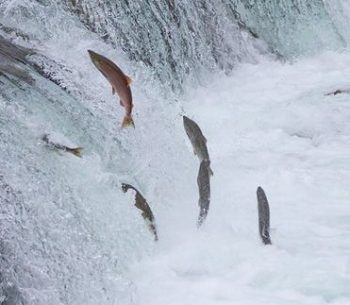
EPA kills proposed Obama-era Pebble mine ‘veto’
The Environmental Protection Agency announced Tuesday it will reverse an Obama-era decision to block a controversial Alaska mine project. “After today’s action EPA will focus on the permit review process for the Pebble Mine project” Region 10 Administrator Chris Hladick said in a statement. While the EPA is withdrawing the 2014 determination, which it wrote “was issued preemptively and is now outdated,” the withdrawal does not constitute an approval of the permit application or a determination in the permitting process. “Instead, it allows EPA to continue working with the Corps to review the current permit application and engage in the National Environmental Policy Act (NEPA) process,” the statement reads. >click to read< 19:19
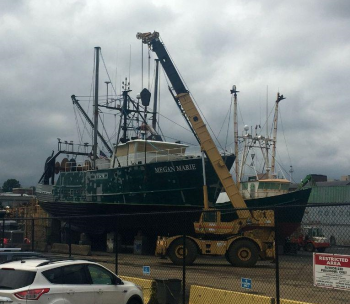
Fishing For A Living Is Dangerous. Will Offshore Wind Farms Make It Worse?
“[Fishing is] like trying to drive around in a car with no brakes,” Daniel Farnham says. “on a road made out of treadmills and having obstacles thrown in your way continuously.”Farnham says offshore wind farms will make it worse. That’s because fishermen argue the turbines aren’t spaced far enough apart to allow vessels to safely navigate through them. The plan is to install 84 massive turbines in a grid-like pattern about three-quarters to a nautical mile apart. Farnham says mobile gear vessels like his, that have massive nets trawling behind them, will make it even harder to navigate. >click to read< 18:04
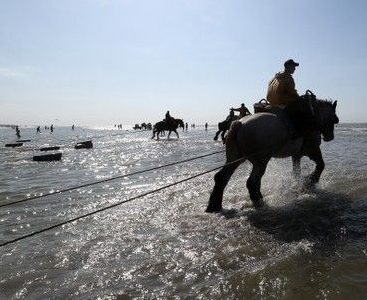
In Belgium, horses pull shrimp nets in tradition unchanged for 600 years
In the small western Belgian fishing village of Oostduinkerke, fishermen use horses, rather than boats, to go shrimp fishing — one of the very few places in the world still using a technique dating back to the 15th century. The method makes use of the horse’s strength to pull a fishing net through the shallow waters of Oostduinkerke, a natural habitat to grey shrimp (Crangon crangon), just before and after low tide. “We see that the population of shrimps is going down every year. We catch a lot of plastic these days. 12 photo’s, >click to read< 16:53
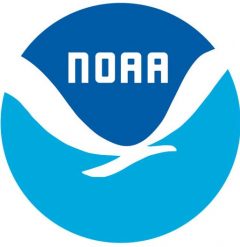
‘Hidden’ NOAA temperature data reveals 6 of the last 9 months were below normal in the USA, and NOAA can’t even get June right
While media outlets scream “hottest ever” for the world in June and July (it’s summer) and opportunistic climate crusaders use those headlines to push the idea of a “climate crisis” the reality is for USA is that so far most of 2019 has been below normal, temperature-wise. Little known data from the state of the art U.S. Climate Reference Network (which never seems to make it into NOAA’s monthly “state of the climate” reports) show that for the past nine months, six of them were below normal, shown in bold below. The data, taken directly from NOAA’s national climate data page, shows not only that much of 2019 was below normal, but that the US Temperature average is actually cooler,,, >click to read< 15:19
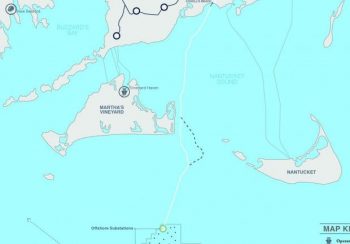
Fishermen Are At Heart of Delay in Vineyard Wind Project
The fishermen’s breakthrough with the National Marine Fisheries Service mirrors their breakthrough last month with the Edgartown Conservation Commission, which voted 5-1 on June 27 to reject a permit for Vineyard Wind to lay cable on the ocean floor about a mile east of Martha’s Vineyard’s eastern shore. That meeting was not audiotaped or videotaped, according to a town official, but reports say that fishermen raised concerns that electromagnetic radiation from the cable may disrupt the ability of fish to communicate with each other, and therefore decrease the number of fish. Fishermen were also concerned the laying of the cable could itself damage the fishery. >click to read<12:08
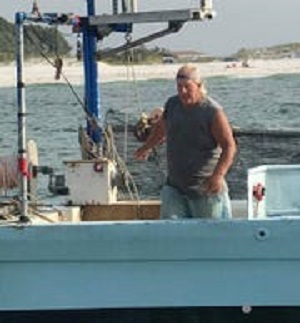
‘No one can fill those shoes:’ Pensacola fishermen mourn loss of ‘Tony the bait man’
It’s been routine for fishermen setting sail on the Gulf of Mexico over the past 15 years to stop beside the unmistakable blue boat — always parked in the same spot about a mile east of Pensacola Pass — for a live bait transaction. Until his last day on earth, you could buzz Tony Barfield on VHF radio channel 11 or pull right up to the beloved bait salesman’s trademark spot on the pass to pick up your cigar minnows or threadfins for the day. Barfield died July 19 of natural causes at the age of 61. >click to read< 11:41

Lobsters claw their way back to freedom
At the fifth annual ceremony, Island visitors and residents stood beside members of the Buddhist center as Karma Trinlay Rinpoche blessed the lobsters with sacred water and herbs. Then folks took turns picking up the lobsters and placing them gently into the harbor, where the powerful current will carry them far away from human dangers such as lobster pots and pollution. The lobsters were purchased from the Menemsha Fish Market and cooled before the ceremony in order to make the lobsters lethargic and prevent fingers from getting pinched. >click to read< 10:10

HR 1568: Rep. Fernandes and Colleagues Advocate for the Critically Endangered North Atlantic Right Whale
On Monday, State Representative Dylan Fernandes (D- Falmouth) and State Senator Cyr (D-Truro) hosted an event at the State House with the International Fund for Animal Welfare and the New England Aquarium, supporting North Atlantic right whale conservation efforts. The event included the presentation of a resolution, sponsored by Rep. Fernandes, that was passed through the House in support of the Federal SAVE Right Whales Act.,,, The event also included a special guest: Calvin, the New England Aquarium’s 42ft inflatable right whale. >click to read< 08:56 H.R.1568 text – >click to read<
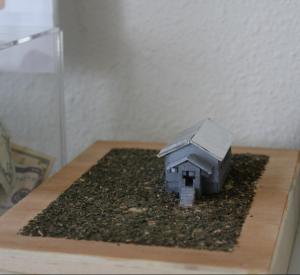
Remembering 1919, one hundred years later, the Spanish flu hit Bristol Bay, and the salmon run collapsed.
“The Spanish flu arrived to Alaska in 1918 and devastated the population.,, People thought it had run its course that winter, but when cannery ships arrived in 1919, people were quickly becoming sick, it was evidenced it was influenza, and it devastated not just the Native population, it killed many people who lived here, but it really changed the demographics in this region.” Within weeks of the start of the 1919 fishing season, hundreds of cannery workers and locals were infected with the Spanish flu. The virus wiped out most of the adult population in many villages around Bristol Bay, leaving behind dozens of orphaned children. One of the communities most changed by the outbreak was Naknek. >click to read< 22:05
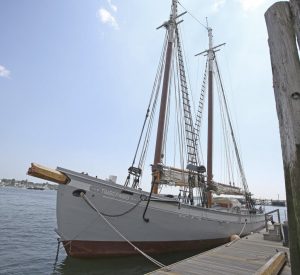
Lobsterman charged after boat collision
A schooner operated by a Portland tour company, and a lobster boat collided near the entrance to Customs House Wharf on Sunday evening, resulting in one arrest for boating under the influence. The lobster boat, Patricia Ann, was being operated by Russell N. Parmenter, 39, a lobster fisherman from Yarmouth. The bowsprit of the schooner, the Timberwind, was damaged. Both were attempting to enter their docking slips, said Maine Marine Patrol officer Alex Hebert. >click to read< 21:41
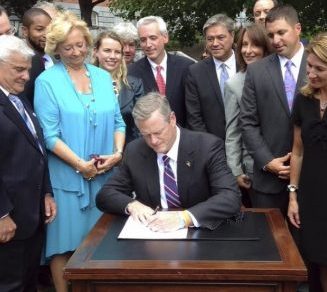
Governor Charlie Baker eyeing ‘cure plan’ for Vineyard Wind project
After a “really productive and substantive” meeting with new U.S. Interior Secretary David Bernhardt in Washington, D.C., on Monday morning, Gov. Charlie Baker said his administration will be working with Vineyard Wind,,, On Monday, Reuters reported that the National Marine Fisheries Service “triggered the delays by declining to sign off on the project’s design, as proposed by the Bureau of Ocean Energy Management” and that a regional director for the agency “said his agency could not support the environmental permit for Vineyard Wind because the project failed to fully address the concerns of the fishing industry.”,,, Pressed by a reporter as to why he would not say fishing was among the concerns, Baker responded: “Can you read the comments? They’re not that hard to find. Certainly, there were issues that were raised by fishing. There were issues that were raised by a number of other federal agencies as well.” >click to read< 19:44

The Pew Charitable Trusts Urge Fishing-Industry Changes to Protect Right Whales
Support for this reporting was provided by The Pew Charitable Trusts. Katharine Deuel, an officer with The Pew Charitable Trusts, said action can’t come soon enough for the dwindling right whale population, but she understands the plight of the fishing industry too.,,, The Scientific Assistance for Very Endangered Right Whales, or SAVE Right Whales Act, was introduced by Rep. Seth Moulton of Massachusetts (supports ropeless gear development),,, Charles “Stormy” Mayo directs the Right Whale Ecology Program at the Center for Coastal Studies. He said he feels for the fishermen,,, >click to read< 16:31
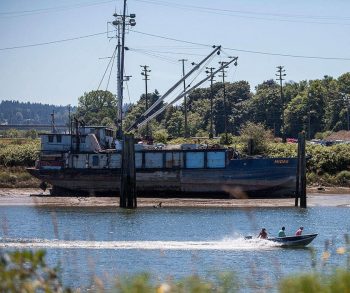
State could seize 100-foot boat stuck in Snohomish River
In April 2018, a rundown World War II-era commercial fishing boat called the Hannah Marie sank in Steamboat Slough. A few weeks later, its owner towed it into the Snohomish River to renovate it for a return trip to Alaska. Since then, the boat hasn’t moved. Last week, the Department of Natural Resources’ derelict vessels removal program gave the boat’s owner a 30-day notice to move it. If he doesn’t get it out of the river by Aug. 14, the state will take custody of the 100-footer and have it removed. In the event he is able to tow the Hannah Marie elsewhere, he’ll keep it. >click to read<

Deciding where to fish. To explore or exploit? Fishing vessel records show trade-offs
When making choices, people tend either to go with what they know or try something new. We experience this trade-off every day, whether choosing a route to work or buying breakfast cereal. But does one strategy have an advantage over another? Researchers decided to examine this question by looking at fishing boat captains, who face this choice again and again when deciding where to fish. >click to read< 14:13
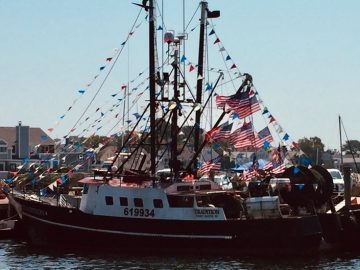
Photos from the 66th Annual Blessing Of The Fleet in Stonington, Connecticut
The 66th annual Blessing of the Fleet was held Sunday, July 28 in Stonington Borough to honor and remember those who have died at sea on the last commercial fishing fleet in Connecticut. The event honors and blesses the vessels and their captains, owners, crews and families that will go out to sea in the year ahead. >click to read< 12:41
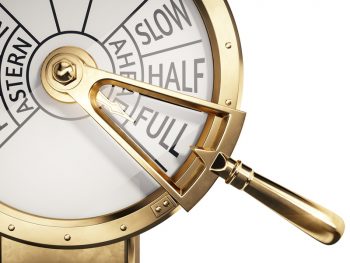
International shipping industry under increased scrutiny as whale death toll grows
The shipping industry is under increased scrutiny after two cargo ships were fined for sailing too fast through the Gulf of St. Lawrence, where the rising death toll among endangered North Atlantic right whales has been partly blamed on collisions with vessels. There have been eight deaths reported since early June, and examinations of five of the carcasses showed three of them had injuries consistent with ship strikes, a leading cause of death for these rare mammals. 227 vessels exceeded speed limit in 3 months >click to read< 11:23
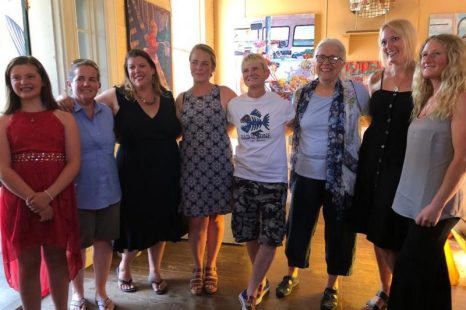
Painter Susan Tobey White captures a ‘day in the life’ of female lobstermen
First, it’s important to get it straight. She’s not called a ‘lobsterwoman’ if the person lobster fishing is female; the correct term, no matter what the gender is lobsterman. Susan Tobey White’s latest series, “Lobstering Women of Maine” is all about the women who haul traps, bait bags, stern and lobster fish off their own boats. The exhibit is currently hanging at Penobscot Marine Museum until October 2019. At least 300 people showed for her artist’s reception on July 14 and among those in the crowd were several of the women she did the portraits of. “I think most of the people who showed up at the reception were in awe. They had no idea that women even did this line of work,” said White. >click to read< 10:32
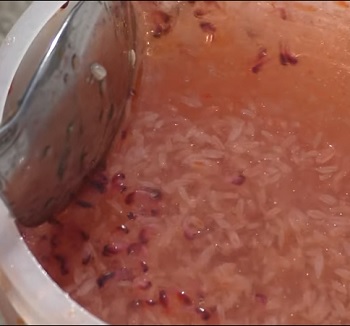
Experts track right whale behavior in new trouble spot
Scientists from the U.S. and Canada have returned from a North Atlantic right whale survey trip in the southern Gulf of St. Lawrence where they found dense reserves of zooplankton that have drawn 70 or more of the critically endangered marine mammals to the region this summer. They now expect the right whales to move farther north in the coming summers to follow the movement of the food they consume,,, Many of the right whales that visit Cape Cod Bay and south of the islands in the late winter and early spring migrate northward as they follow the movement of zooplankton, especially a rice-sized copepod called calanus. >click to read< 09:58
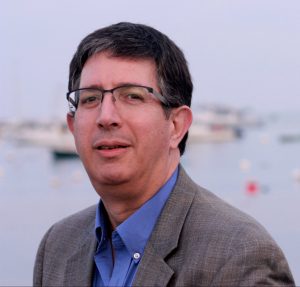
Exclusive: First big U.S. offshore wind project hits snag due to fishing-industry concerns
Vineyard Wind, a joint venture between Copenhagen Infrastructure Partners and Avangrid Inc (AGR.N), was scheduled to begin,,, Documents seen by Reuters, which have not previously been made public, show the National Oceanic and Atmospheric Administration’s (NOAA) National Marine Fisheries Service (NMFS) triggered the delays by declining to sign off on the project’s design, as proposed by the Bureau of Ocean Energy Management (BOEM), the lead agency on offshore wind projects.,,, In an April 16 letter to BOEM, Michael Pentony, regional administrator for NOAA Fisheries’ Greater Atlantic office, said his agency could not support the environmental permit for Vineyard Wind because the project failed to fully address the concerns of the fishing industry.,,, >click to read< 08:26
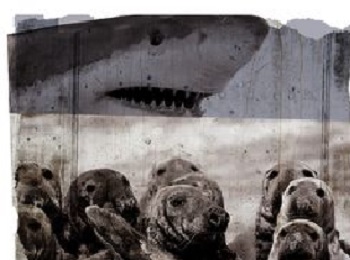
Protecting gray seals — when does success become excess?
The ever-expanding gray seal population in our coastal waters is protected in perpetuity by the Marine Mammal Protection Act of 1972. The success of the act in restoring gray seal populations is widely acknowledged, but at what point should we address the problematic consequences of that success? With numbers of white sharks — attracted by gray seals — being spotted off our beaches, answering that question is becoming increasingly urgent. >click to read< 17:50






